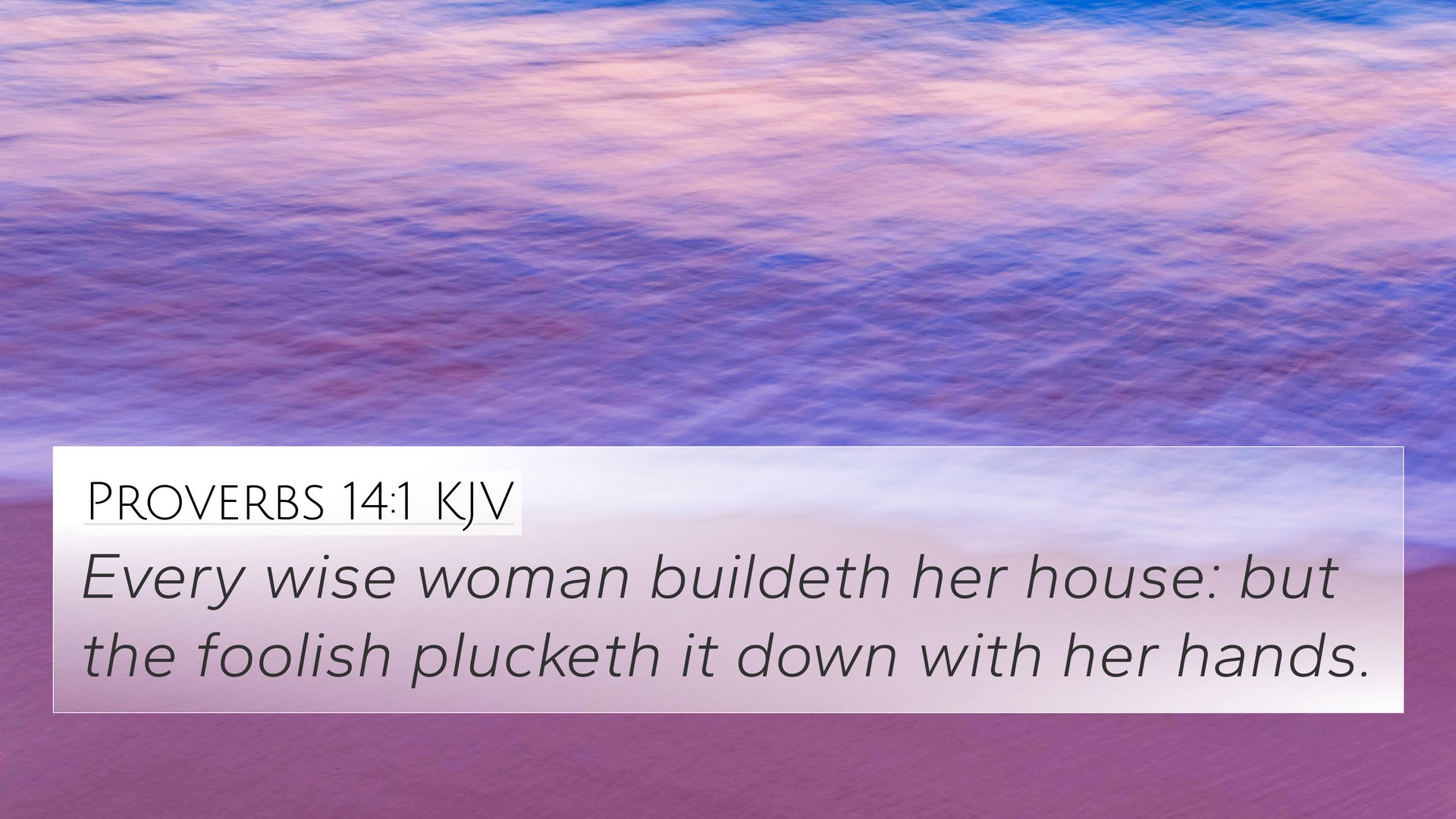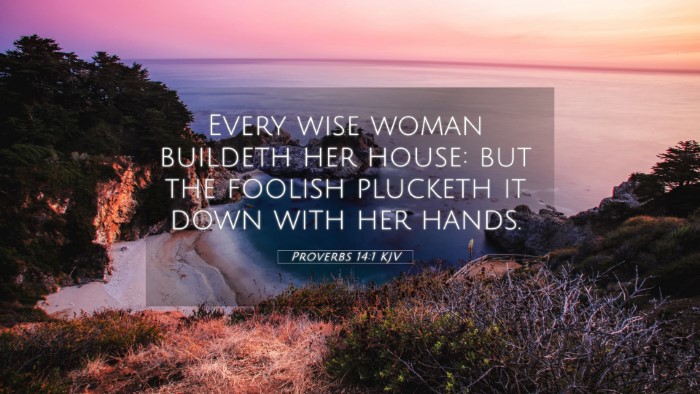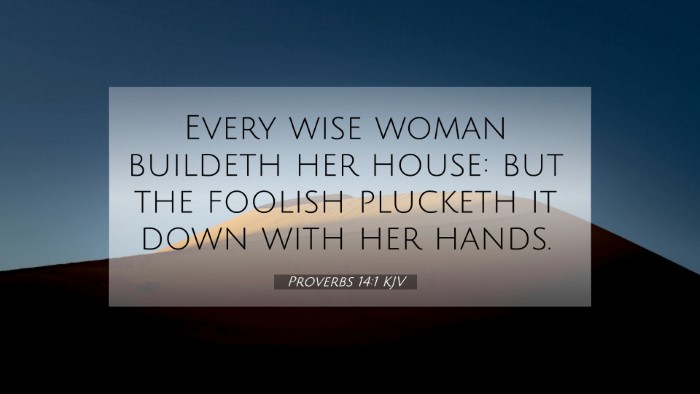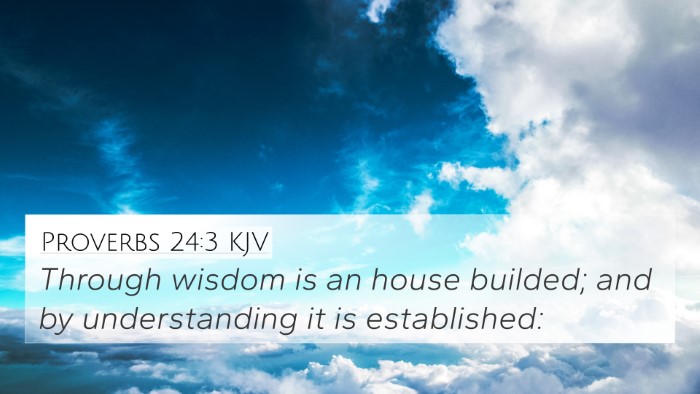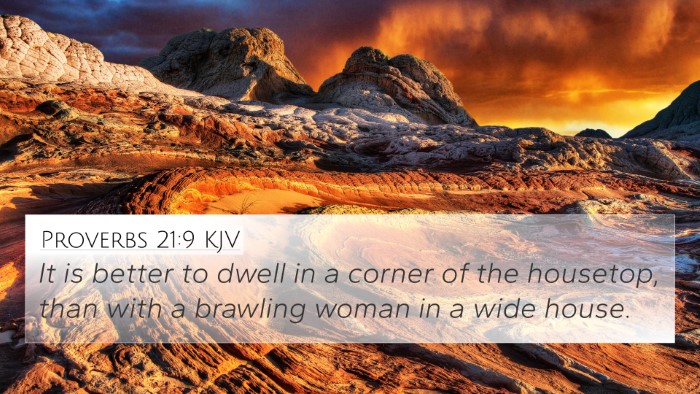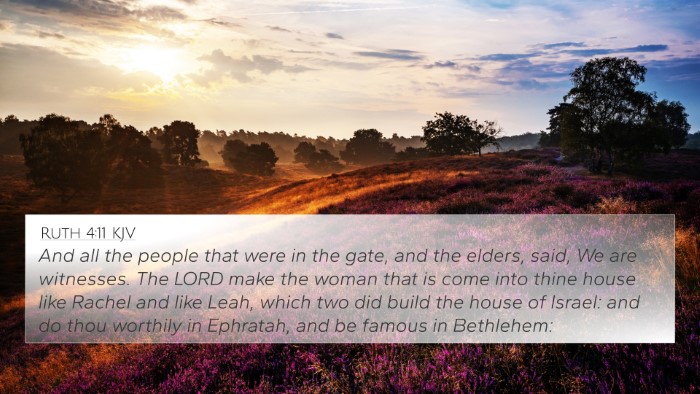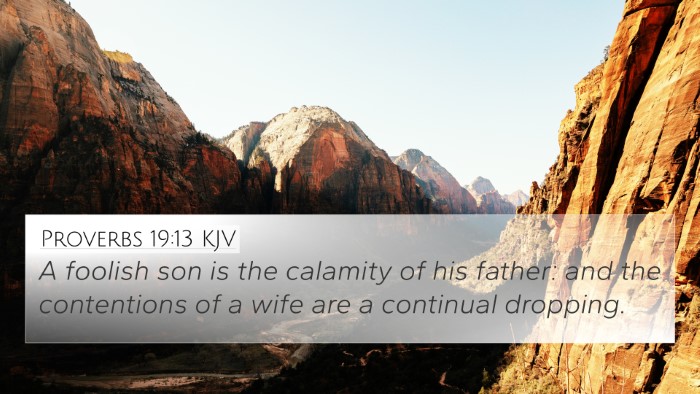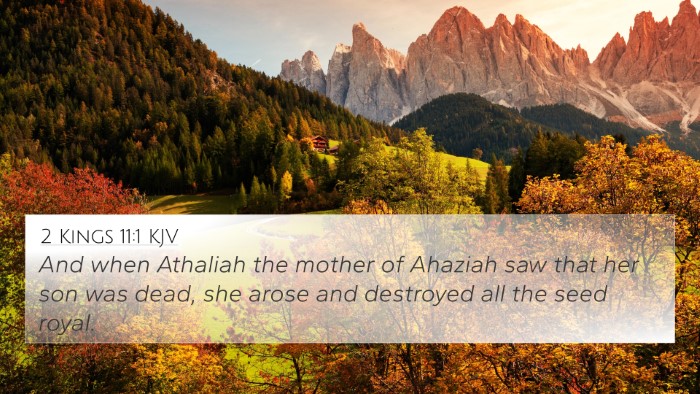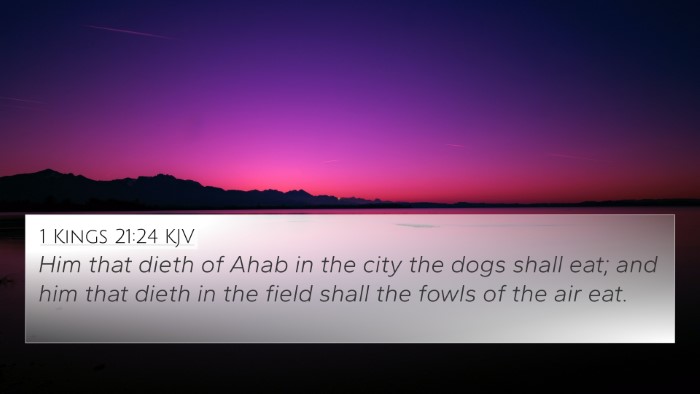Understanding Proverbs 14:1
Verse: "The wise woman builds her house, but with her own hands the foolish one tears hers down." - Proverbs 14:1
Summary of Meaning
This verse highlights the contrasting roles of wisdom and folly, particularly in the context of a household. The "wise woman" represents prudence, foresight, and the nurturing qualities necessary for maintaining and enhancing a family unit, while the "foolish" individual embodies destructive behaviors that lead to chaos and ruin.
Commentary Insights
-
Matthew Henry:
Henry emphasizes the metaphorical sense of "building" and "tearing down," suggesting that the actions of a wise person contribute positively to their home and relationships, while foolish actions destabilize what could be a thriving household.
-
Albert Barnes:
Barnes notes that wisdom in a woman is demonstrated through her actions and decisions. Such wisdom is vital not only in domestic affairs but also as a guiding principle for future generations within the family.
-
Adam Clarke:
Clarke discusses the societal implications of the verse. A wise woman creates a haven for her family, a place of peace and security, contrasting the foolish actions that lead to the disarray of home life, thus highlighting the importance of wise decision-making.
Bible Cross-References
Proverbs 14:1 finds connections with several other biblical verses that reinforce its themes:
- Proverbs 31:10-31: Describes the attributes of a virtuous woman who embodies wisdom and diligence.
- 1 Timothy 5:14: Encourages women to manage their households wisely, ensuring they support and nurture their families.
- Titus 2:4-5: Advises older women to teach younger women to love their families and act sensibly.
- Proverbs 15:28: Discusses how the heart of the righteous studies how to answer, highlighting the importance of wisdom in communication.
- Proverbs 24:3-4: States that by wisdom a house is built, echoing the constructive theme of Proverbs 14:1.
- Matthew 7:24-27: The parable of the wise and foolish builders; both wisdom and folly lead to different outcomes in one’s life foundation.
- Proverbs 12:4: Compares a virtuous woman to a crown for her husband, suggesting the value of a wise woman in a household.
- Ecclesiastes 7:4: Reflects on wisdom being more beneficial than folly, supporting the notion that a wise approach leads to a strong foundation in life.
- Proverbs 17:1: Emphasizes the importance of peace in a household, which a wise woman nurtures.
- 1 Peter 3:1-2: Talks about the influence a wise and respectful woman can have on her spouse, reflecting the importance of character and wisdom in relationships.
Thematic Connections
The themes present in Proverbs 14:1 resonate throughout the scripture:
- Wisdom vs. Folly: This dichotomy is prevalent across many books of the Bible, particularly in the wisdom literature.
- Domestic Harmony: Verses that encourage maintaining a peaceful and supportive family environment echo the sentiments of this verse.
- The Role of Women: The Bible presents women as influencers of the home, with many passages illustrating their importance in nurturing family's spiritual well-being.
- Concrete Actions: The practical implications of wisdom as demonstrated through actions highlight an active engagement in one’s responsibilities.
Conclusion
Proverbs 14:1 serves as a powerful reminder of the impact of personal choices on the foundation of family life. By exploring the insights from notable public domain commentaries, we see the broader implications of wisdom and folly in both individual and communal contexts. Such comparative Bible verse analysis not only enhances our understanding but encourages us to strive for wisdom in our actions and relationships.
